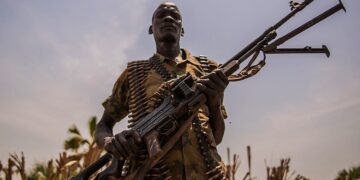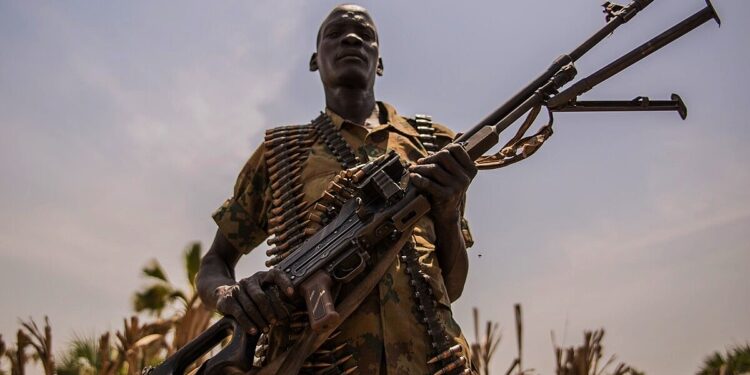By John Ikani
The United Nations Security Council (UNSC) has decided to relax the arms embargo on the Central African Republic (CAR), permitting the flow of weapons to government forces.
However, authorities in the capital city of Bangui have expressed their discontent, advocating for a complete lifting of the ban.
The Security Council justified its decision by citing the ongoing threat posed by the country to international peace and security in the region.
The embargo, which has been in place since the 2013 civil war, will now extend until July 31, 2024.
However, there’s a notable shift, as the embargo will no longer apply to the “supply, sale or transfer of arms and related materiel and the provision of assistance, advice and training to the CAR security forces.”
The Council’s measure, adopted with 13 votes in favour while Russia and China abstained, highlights concerns over arms trafficking to various armed groups operating within the Central African Republic.
In response to the decision, authorities in Bangui expressed regret and called for a total lifting of the embargo.
The Foreign Minister, Sylvie Baipo Temon, voiced her strong disapproval, accusing the UN Security Council of making an unjust “amalgam” between her country and the armed groups.
“The text adopted today is a real affront to the Central African Republic,” she asserted after the vote, emphasizing that the Central African people reject the “iniquitous and arbitrary verdict,” while also expressing gratitude to China and Russia for abstaining.
One of the key reasons for the opposition came from Russia’s Deputy UN Ambassador, Dmitry Polyanskiy, who argued that the embargo had proven ineffective in preventing fighters from obtaining weapons over the past decade.
Polyanskiy believed that, given the current state of affairs in the CAR, the Security Council should have removed all forms of sanctions on the country’s efforts to stabilize and safeguard its national security.
Despite their criticism, Russia, as a veto-wielding member, did not block the resolution’s adoption, which also condemned “the use of mercenaries and violations of international humanitarian law and human rights violations and abuses perpetrated by them.”
In addition to the easing of the arms embargo, the resolution has extended sanctions for another year, including asset freezes and travel bans against around 15 individuals, including former president Francois Bozize.
The Central African Republic, one of the world’s poorest nations, has been grappling with a protracted civil war since 2013.
The conflict was sparked when then-President Bozize was ousted by the Seleka, a rebel coalition primarily composed of the Muslim minority.
The coup triggered a violent sectarian conflict between the Seleka and opposing forces known as the anti-Balaka.




































